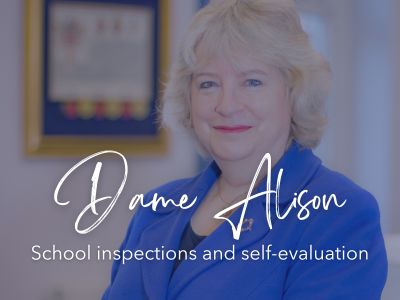Time and again, teachers tell me that they want to be able to work together to build the best education for children and young people, and are frustrated by top-down and restrictive systems. Evidence suggests that teachers who feel a sense of agency over their practice and over their own learning are more likely to stay in the profession. The new mission of the Chartered College builds on this, focussing on ‘empowering a knowledgeable and respected teaching profession’. So as part of the steering group for the Beyond Ofsted inquiry, which published its report this week, I have been reflecting on how our inspection system could be part of that picture, instead of – as we have been repeatedly hearing – increasing stress and contributing to a feeling of being ‘done to’ in schools. And it was interesting to compare the findings and recommendations from that inquiry with another report this week, from Loic Menzies and IPPR.
Teachers and leaders know their pupils and their context better than any outside agency. It makes sense then to build a framework for school self-evaluation and a mechanism for providing the support that schools need in order to improve. Having some consistency in that framework makes it easier to give information to parents about schools in a local area, as well as for schools to support each other. Instead of being top down, and making schools ‘second guess’ what Ofsted wants, this is a process that could give teachers and leaders a greater voice in the improvement of their own school, and increase their agency to find appropriate support and challenge for their needs.
An independent inspectorate, led by the profession, also allows a stronger voice in the development of policy. Imagine if, instead of providing thematic reports to schools on how they can teach better, the inspectorate gave reports to government about how they could build a better system. Reports on the impact of the current funding landscape, or pupil mental health, or teacher recruitment and retention, could help government to prioritise their response, and showcase the amazing work done by our schools in the face of these difficulties.

School improvement is about much more than inspection or evaluation of course, and IPPR’s report highlights the importance of teacher development. Again, CPD can be empowering or it can be restrictive: in my experience, the best learning happens when teachers have choices, when they learn what is important to them, and when they learn together, and these are the things we support through our Chartered College programmes and partnerships. An empowered profession brings in outside expertise when necessary, but is also confident to share our own expertise to challenge and innovate.
I don’t want to minimise the problems of time and workload, and there will be many who look at the idea of 100 hours a year of high quality CPD as a pipe dream. But who wouldn’t want to be part of a profession that was built on learning, that expected continual improvement and respected teachers enough to provide the time to grow? Where a profession-led inspectorate celebrated, publicly, the impact of professional learning, and gave reports to government on how they could better support schools? And where your professional community, through the College, was at the forefront of building evidence-rich learning?
Press queries
Nansi Ellis, Public Relations and Communications
E: press@chartered.college / T: 020 7911 5589
